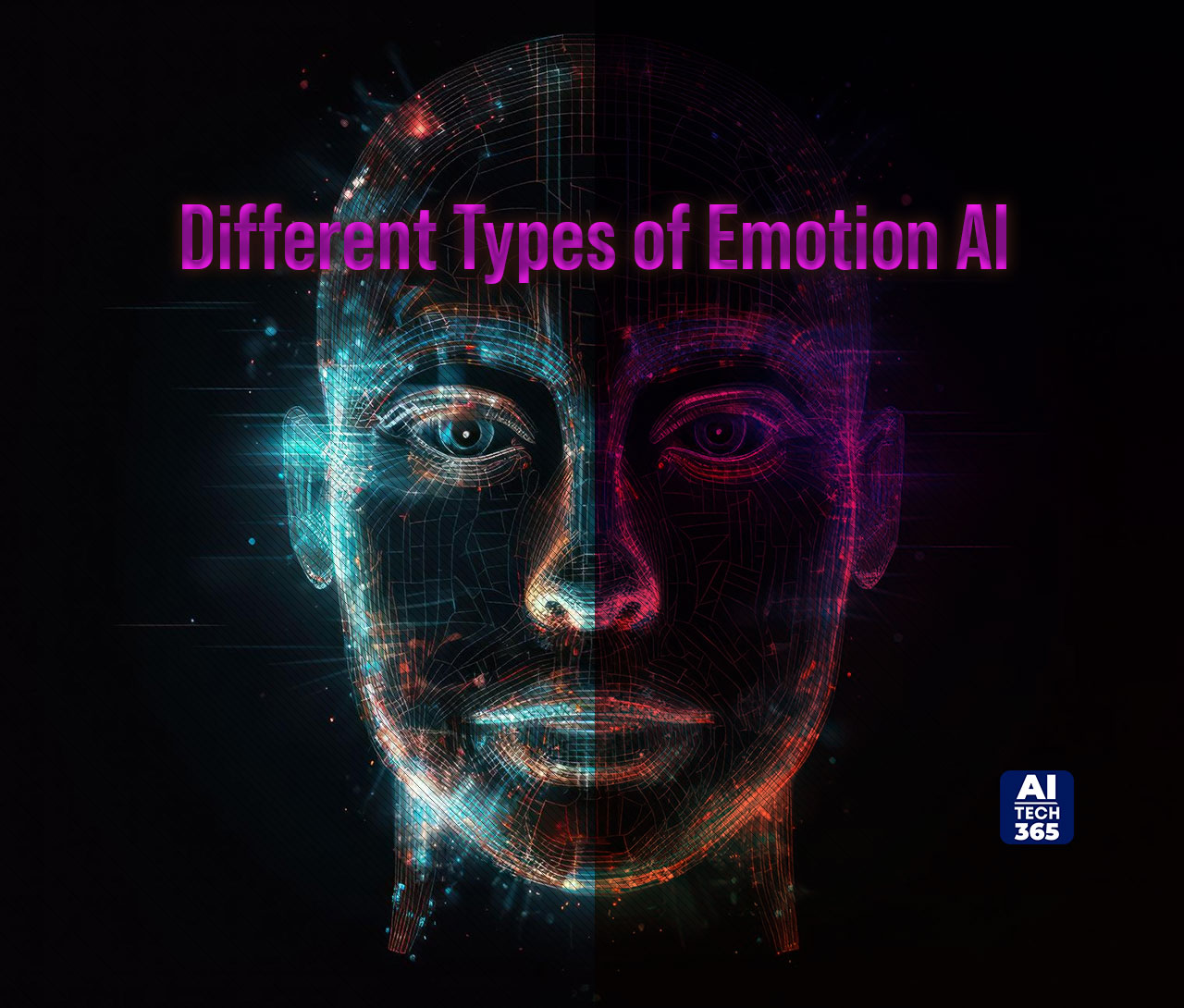People often say to be careful what you wish for, and it seems there’s wisdom in those words. In the past, the idea of humans depending on AI for daily tasks would have sounded like a joke. And yet here we are, actively depending on AI, even hoping that it will be able to recognize human emotions and respond accordingly. It’s starting to become a reality that we didn’t fully expect.
We’ll talk about the things you should know about Emotion AI in this blog post before it completely consumes us. Let’s go.
What is Emotion AI?
Emotional AI encompasses the use of artificial intelligence to identify and understand human emotions in various formats, such as text, audio, video, or a combination of these. This involves employing natural language processing and sentiment analysis for textual data, voice AI emotion for audio data, facial movement analysis, gait analysis, and physiological signals for video data.
Emotional artificial intelligence (AI) is more prevalent than one might expect. At least since 1995, when Rosalind Picard, a professor at the MIT Media Lab, released “Affective Computing,” the topic has existed.
An example of this is sentiment analysis, a tool that is often used in various industries such as marketing to analyze product reviews and personalized recommendations, as well as in finance to predict stock market movements.
Additionally, it has the potential to have an impact on various sectors, such as healthcare, insurance, education, and transportation. There is a possibility that in the future, emotional AI could be utilized for purposes like identifying depression, identifying instances of insurance fraud, evaluating a student’s understanding of a lesson, or assessing a driver’s competence. Emotional AI technology is experiencing a promising trajectory in terms of its future growth.
Benefits of Emotion AI
The benefits of emotional AI span across different industries, offering valuable insights to marketers, advertisers, designers, engineers, and developers. It streamlines these procedures by facilitating focus groups, user testing, and customer surveys. Designers can leverage AI emotion detection to extract valuable insights from consumer reactions to ad campaigns, prototypes, and mockups, leading to significant time and cost savings. The technology’s capability to capture and analyze human body language and emotions ensures that products and services developed with it are more attuned to users’ needs and feelings.
Different Types of Emotion AI
 Emotional AI comes in three primary types: text-focused, voice-focused, and video and multimodal AI emotion.
Emotional AI comes in three primary types: text-focused, voice-focused, and video and multimodal AI emotion.
- Text Emotion AI: Analyzes written content, such as online comments or news stories, to discern the overall emotional tone, whether positive or negative.
- Audio and Voice Emotion AI: Evaluates human speech, enabling the assessment and tracking of customer service calls to understand both the vocal patterns and content of conversations.
- Video and Multimodal Emotion AI: Processes video signals, including eye movement and body language, providing a comprehensive analysis of emotional cues.
Why is Emotion AI Important?
Emotional AI is important because it helps people become more emotionally intelligent (EQ), which can be a greater asset for success than intelligence quotient (IQ), according to psychologist Daniel Goleman. It helps individuals make informed decisions by mitigating emotional biases that may affect rational thinking.
In today’s tech-driven world, where global reliance on technology is increasing, emotion AI becomes essential for personalized and empathetic interactions. It incorporates artificial empathy into machines, creating smart products capable of understanding and responding effectively to human emotions. Examples include the gaming industry’s creation of lifelike characters that respond to players’ emotions to enhance the gaming experience, and healthcare applications that use voice analysis to identify Parkinson’s illness.
Despite its unparalleled advantages, implementing and scaling emotion-based applications pose various challenges.
What Happens to Customer Privacy?
Privacy and accuracy concerns loom over the widespread use of emotion AI. Despite providing quick consumer insights, the optional legal consent for AI analysis raises privacy issues, as consumers must trust companies to safeguard their data. Mood targeting for brands can backfire if not aligned with the underlying factors, leading to ‘misallocation loss.’ The technology’s reliance on identifying emotions, which humans can hide effectively, results in inaccurate and biased outcomes.
Researchers are exploring models combining Natural Language Processing with nonverbal signals for more accurate results, but challenges like data quality, cultural differences, and computational load persist. The ethical implications of using emotional AI for sensitive issues, such as employability scores or proctoring exams, raise concerns about unintentional bias. Treating emotions merely as metrics may seem inhumane, challenging the intended bridge between humans and machines.
Can Emotion AI Do More Good than Harm?
 The inherent controversy surrounding emotional AI stems from its complexity in understanding human emotions. Technical issues like bias and accuracy can be largely resolved, but human emotional expression is complex due to factors like age, context, mental state, and sarcasm. The misuse potential—for example, identifying opponents based only on feelings—raises ethical and privacy concerns. AI’s attempts to help with emotional issues, such as recommending therapy, are viewed as conceit because emotions are very context- and variable-specific.
The inherent controversy surrounding emotional AI stems from its complexity in understanding human emotions. Technical issues like bias and accuracy can be largely resolved, but human emotional expression is complex due to factors like age, context, mental state, and sarcasm. The misuse potential—for example, identifying opponents based only on feelings—raises ethical and privacy concerns. AI’s attempts to help with emotional issues, such as recommending therapy, are viewed as conceit because emotions are very context- and variable-specific.
Limited applications, like enhancing human-like interactions in certain contexts, show promise, but broader implementations, such as job interviews, pose risks of discrimination and serious consequences. The moral and ethical concerns, coupled with the potential for abuse by repressive governments, highlight the need for careful consideration of whether emotional AI should be used rather than just questioning its technical feasibility.


